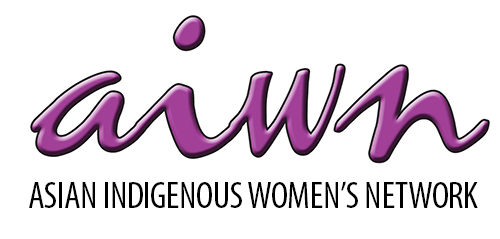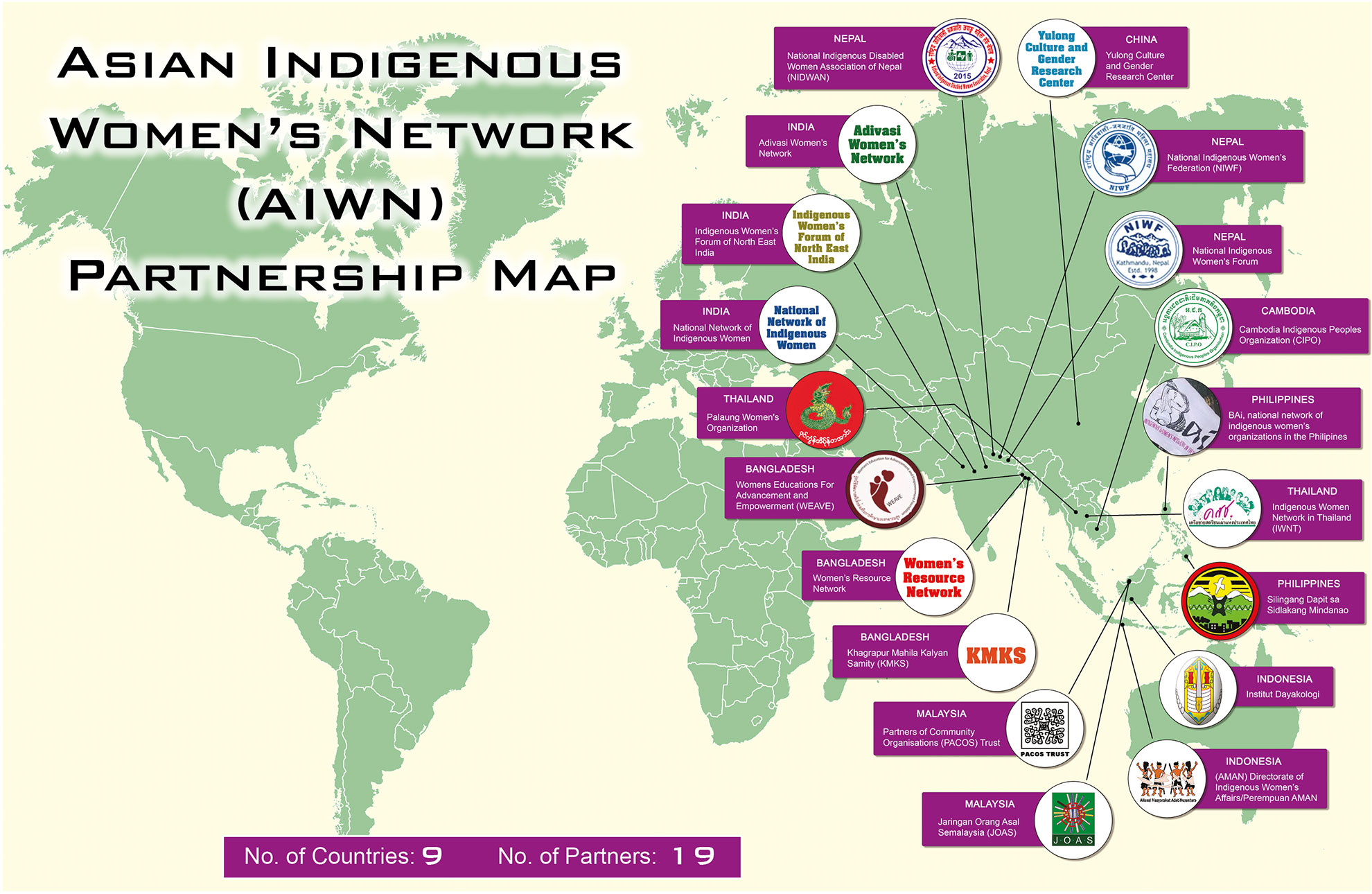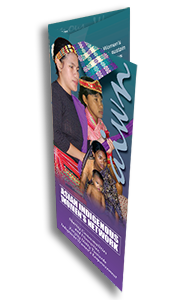Asian Indigenous Women’s Network (AIWN)
with 19 member federations and organizations from 12 countries: Indigenous Women’s Network of Thailand (IWNT) – Thailand; BAI/Philippine Indigenous Women’s Federation – Philippines; Naga Women’s Union, Indigenous Women’s Forum in Northeast India and Adivasi Women’s Network – India; Women’s Resource Network and Taungya – Bangladesh; Center for Sustainable Development in Mountainous Areas – Viet Nam; Palaung Women’s Organization – Burma; Dongba Cultural Institute of Lijiang and Yulong Culture and Gender Research Center – China; Association for Taiwan’s Indigenous Peoples’ Policies (ATIPP) – Taiwan; Partners of Community Organisations (PACOS) – Malaysia; Centre for Human Rights and Development – Mongolia; National Network of Indigenous Women, Nepal Indigenous Women’s Federation and Association of Newar Women – Nepal; Aliansi Masyarakat Adat Nusantara (AMAN) – Indonesia; Tebtebba.
To facilitate its work, AIWN has Country Focal Persons who compose the Coordinating Council. The Coordinating Council is headed by its Convenor, Ms. Victoria Tauli-Corpuz, the former Chairperson of the United Nations Permanent Forum on Indigenous Issues (UNPFII) and Executive Director of Tebtebba. Tebtebba serves as AIWN’s Secretariat.
- Networking and Organizational Consolidation through regular communication in various forms such as the AIWN magazine, listserve, website and surface mail.
- to keep each other updated on developments within their respective organizations and sharing of information through the AIWN Magazine and publications exchange;
- to support indigenous women’s organizations and to help set-up organizations and/or women’s desks, if requested;
- to strengthen the relationships and linkages among and between the members and with other groups and formations; and
- to consolidate the network members through the listserve and through its website www.asianindigenouswomen.org.
- Lobbying and Advocacy in the United Nations and multilateral bodies and agencies dealing with indigenous peoples and women, especially on self-determined development, biodiversity and traditional knowledge, climate change, among others; and initiating and participating in campaigns addressing their issues.
- to raise Asian indigenous peoples’ and women’s issues and concerns in the UN and multilateral bodies and processes and other fora such as the UNPFII, Commission on Status of Women, the Committee on the Elimination of Discrimination Against Women, among others; and
- to undertake campaigns and support ongoing campaigns relevant to the priority concerns of Asian indigenous women.
- Capacity building activities of network members through participation in training and education activities, conferences, workshops, exposure programs and relevant processes and activities from the national to the global level.
- to undertake education and awarenessraising on human rights, the UN Declaration on the Rights of Indigenous Peoples (UNDRIP) and women’s rights;
- to monitor and effectively implement the UNDRIP and the Programme of Action of the Second Decade of the World’s Indigenous People (2005-2015);
- to hold skills-training activities to enhance the capacities of indigenous women to undertake organizing, research, education, campaigns management, advocacy and lobbying, livelihood development; and to develop their leadership potentials; and
- to facilitate the participation of indigenous women in regional and international processes.
- Engendering indigenous peoples’ organizations and networks by undertaking gender analysis of indigenous peoples’ issues and sensitizing them on indigenous women’s issues and perspectives.




